UK marketing consultants love digital, but shun advertising
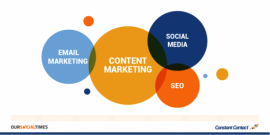
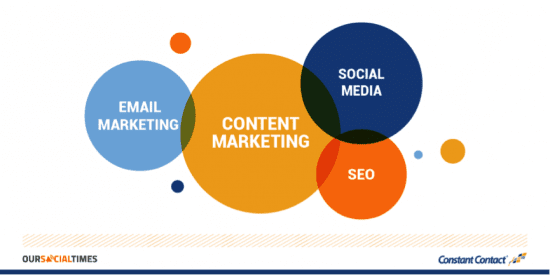
Research reveals how UK marketing consultants and small agencies promote themselves
Over the past few months my team at OST has teamed up with Constant Contact to produce a research report into how UK marketing consultants and small agencies promote themselves. The UK Marketing Consultants: Digital Marketing Report offers a fascinating insight into the marketing activities that experienced, but often time-poor and budget conscious marketing consultants, prioritise.
One of the headline findings is that the top four marketing activities that consultants engage in are: content marketing, social media, SEO and email marketing. This gives a hint (echoed throughout the report) that consultants prefer to use their own knowledge and time than spend their hard-earned cash on marketing.
Another key finding is that while 38% of consultants spend 81-100% of their marketing efforts on digital, 13% still say that 80% of their marketing still happens offline. Writing in the report, I admitted to being surprised by this, but with hindsight – and perhaps without my ‘digital blinkers’ on – it’s pretty obvious that a lot of marketing, especially at a local level, still happens face-to-face and at networking events.
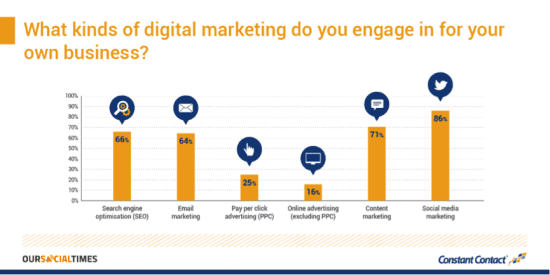
The most damning findings of our survey relate to advertising. 68% of UK consultants say Pay-Per-Click (PPC) advertising is ineffective and 65% say online advertising is ineffective. Throughout the research we found that respondents simply don’t have any faith in advertising to deliver the results they need. For marketing consultants, at least, the heady days of on-going, localised, PPC advertising appear to be well and truly over.
While content marketing, social media, email and SEO generally wiped the board in terms of prioritisation among consultants, we tried to dig a bit deeper about what each activity is best for. For example, email marketing came out on top for lead generation while social media was used most frequently for increasing awareness of a product of services.
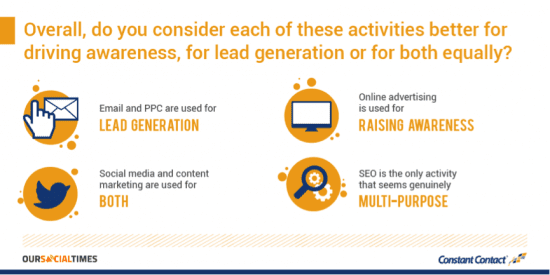
This surprised us a little bit, since most companies – reputable ones, at least – tend to use email marketing for nurturing existing relationships, rather than acquiring new customers. The social media finding is less contentious, though separating out the results of content marketing from social media (and to some extent SEO) may be quite difficult in practice.
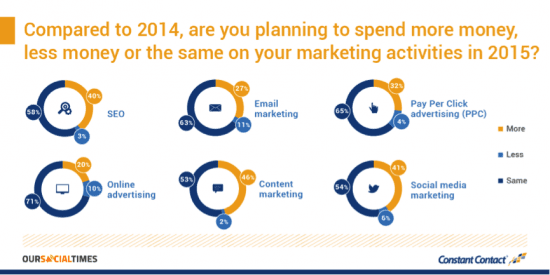
In financial terms the report left us in no doubt that marketing consultants are thrifty customers. The majority spend nothing on most marketing activities and under £50 per month on the ones they do spend on – perhaps for a decent email platform or social media management tool. Only content marketing has the power to elicit budgets over £500 per month and only then for a minority of small agencies, though most consultants plan to spend more – or at least the same – on most activities this year, compared to last year.
Towards the end of the research survey we asked what regular sources consultants rely on for marketing information. While many of them listed blogs, email newsletters and news sites, the top answer was unequivocal: each other. The top sources of daily and weekly information for UK marketing consultants are Twitter and LinkedIn. That is surely a sign of our social times, if ever there was one.
You can download the full report here.
 Thanks to Luke Brynley-Jones for sharing their advice and opinions in this post.Luke Brynley-Jones is CEO of Our Social Times, You can follow him on Twitter or connect on LinkedIn.
Thanks to Luke Brynley-Jones for sharing their advice and opinions in this post.Luke Brynley-Jones is CEO of Our Social Times, You can follow him on Twitter or connect on LinkedIn.
From our sponsors: UK marketing consultants love digital, but shun advertising



